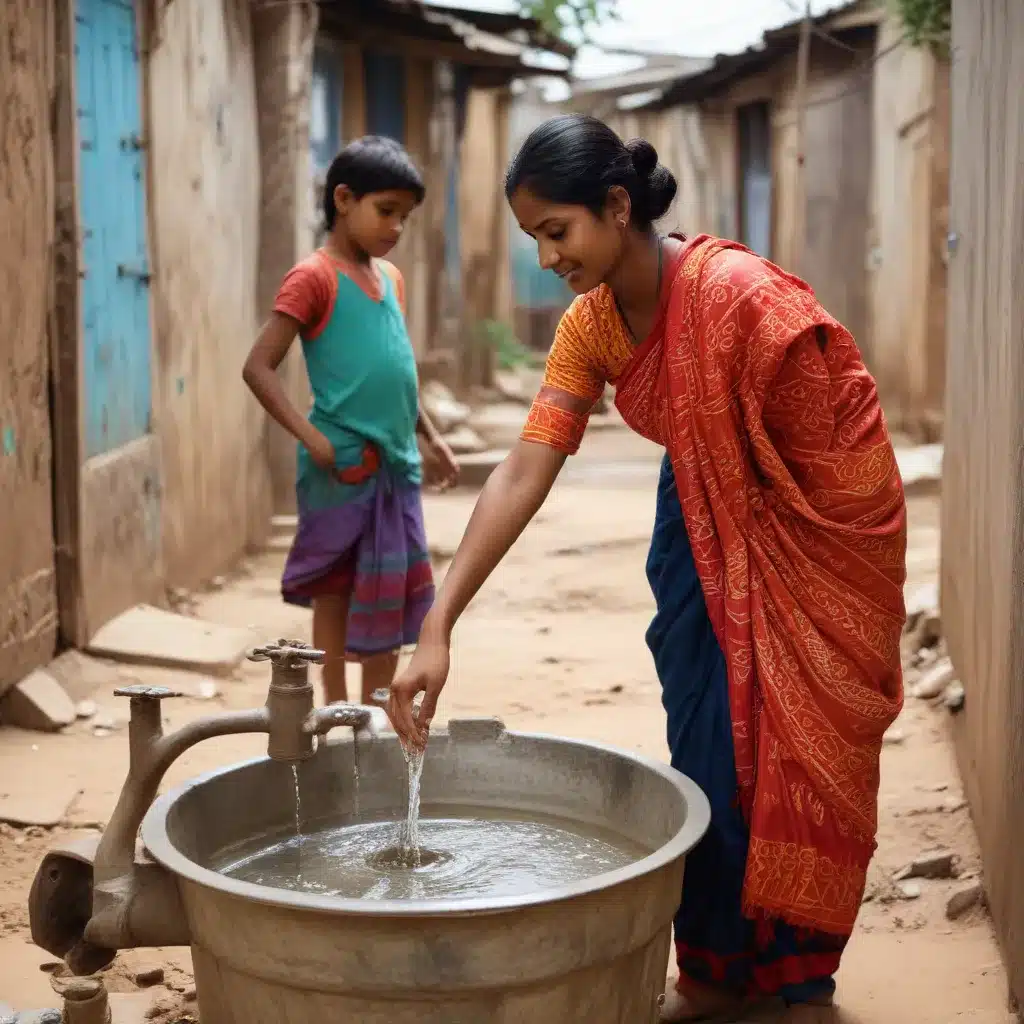
Addressing the Accountability Gap in Urban WASH Services
In Hyderabad’s rapidly growing urban landscape, the provision of reliable and equitable water, sanitation, and hygiene (WASH) services remains a persistent challenge. Despite significant investments in urban infrastructure, many of the city’s poorest residents living in informal settlements continue to lack access to basic WASH facilities. This disparity highlights an accountability gap between service providers and the communities they serve – a gap that must be addressed through innovative community-based monitoring and engagement strategies.
The Importance of Community Participation in WASH Governance
Robust community-based monitoring and accountability mechanisms are essential for ensuring that the benefits of WASH investments reach the most marginalized populations. When communities are empowered to actively participate in the planning, implementation, and monitoring of WASH services, they can hold service providers accountable and advocate for their needs more effectively. This collaborative approach fosters a sense of local ownership, builds trust between residents and officials, and ultimately leads to more sustainable and equitable outcomes.
The World Bank’s 2004 World Development Report emphasizes that “enhancing the voice and participation of the poor” is a crucial step in improving service delivery and governance. This principle aligns with the growing global recognition of the human rights to water and sanitation, which mandate that WASH services must be available, accessible, acceptable, and affordable for all. By strengthening community-based monitoring and accountability, Hyderabad can accelerate progress towards these universal rights.
Fostering Inclusive Community Engagement in Hyderabad
Achieving equitable WASH service delivery in Hyderabad’s slums requires a multipronged approach that empowers local communities and fosters collaboration between service providers, civil society, and government institutions. Several key strategies can help bridge the accountability gap:
1. Establishing Community-Based Monitoring Platforms
One of the most effective ways to enhance community participation in WASH governance is through the creation of inclusive, transparent monitoring platforms. These platforms should provide residents with the tools and resources to regularly assess the quality, accessibility, and reliability of WASH services in their neighborhoods.
Joint Action for Water has pioneered the use of community-based monitoring approaches in several Indian cities, demonstrating their potential to catalyze positive change. In Hyderabad, the organization has worked with slum dwellers to develop user-friendly scorecards that track key WASH indicators, such as water availability, toilet functionality, and hygiene practices. By regularly collecting and sharing this data, communities can identify service gaps, advocate for improvements, and hold service providers accountable.
2. Strengthening Citizen Feedback and Grievance Redressal Mechanisms
Alongside community-based monitoring, it is crucial to establish robust feedback and grievance redressal systems that empower residents to voice their concerns and receive timely responses. This can include setting up dedicated helplines, complaint boxes, or digital platforms where community members can report issues or request service upgrades.
The UN-Habitat’s 2020 World Cities Report highlights the importance of such accountability mechanisms, noting that they “enable citizens to convey their priorities and hold service providers accountable.” In Hyderabad, the municipal government should work closely with communities to design and implement user-friendly feedback systems, ensuring that the concerns of marginalized groups are heard and addressed.
3. Fostering Collaborative Partnerships with Civil Society
To strengthen community engagement in WASH governance, it is vital to cultivate partnerships between municipal authorities, service providers, and civil society organizations (CSOs). These collaborations can leverage the unique strengths and insights of each stakeholder group, leading to more inclusive and responsive WASH programs.
CSOs, in particular, can play a pivotal role in facilitating community mobilization, capacity building, and advocacy efforts. Organizations like Joint Action for Water have demonstrated their ability to empower slum residents, equipping them with the knowledge and skills to effectively engage with service providers and local government. By nurturing these partnerships, Hyderabad can tap into the grassroots expertise and social capital of its communities.
4. Integrating WASH into Broader Urban Planning and Development Initiatives
Improving WASH service delivery in Hyderabad’s slums should not be viewed in isolation, but rather as part of a holistic approach to inclusive urban development. By aligning WASH interventions with broader initiatives focused on housing, land tenure, and livelihood support, the municipal government can address the multidimensional nature of urban poverty and ensure that marginalized communities benefit from the city’s growth.
The World Resources Report on Transformations to Equitable and Sustainable Cities emphasizes the importance of this integrated approach, noting that “cities must emerge from this crisis with a deliberate focus on tackling inequality.” In Hyderabad, this can involve coordinating WASH investments with slum upgrading programs, strengthening tenure security, and fostering economic opportunities for residents.
Embedding Accountability and Sustainability in WASH Service Delivery
By implementing these community-based monitoring and accountability strategies, Hyderabad can not only improve the accessibility and quality of WASH services in its informal settlements but also lay the foundation for more sustainable and equitable urban development. This approach aligns with the broader global shift towards a rights-based, participatory model of WASH governance, as championed by organizations such as Joint Action for Water.
As the city continues to grow and evolve, embedding accountability and community engagement at the heart of its WASH service delivery will be crucial. This will not only empower marginalized residents but also foster a more collaborative, transparent, and responsive relationship between communities and service providers – a partnership that is essential for achieving the human rights to water and sanitation.

